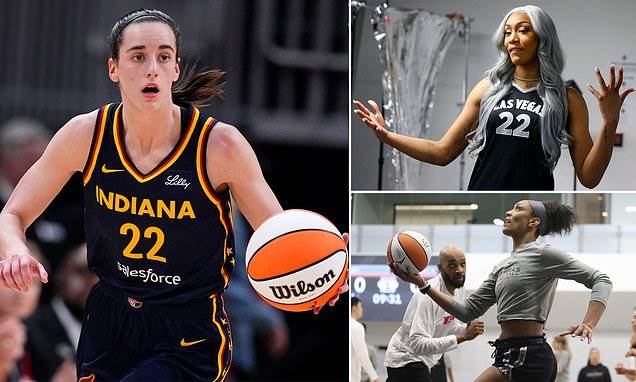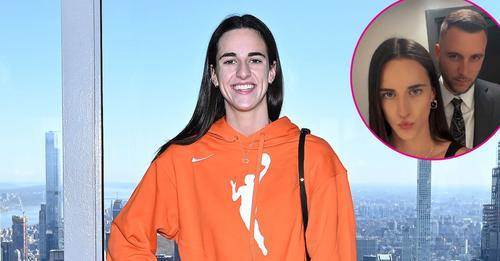
The Talent That Shook the World: Caitlin Clark's Unparalleled Rise
Caitlin Clark's whirlwind journey to the WNBA has been nothing short of a phenomenon. Shattering records and captivating millions, Clark's name quickly became synonymous with excellence in women's college basketball. Her remarkable ability to draw a staggering 14.2 million viewers to the 2024 NCAA women’s basketball championship speaks volumes about her magnetic appeal and the historic impact she has on the game.
Not only did she leave a mark with her performance, but Clark also set a precedent by securing a lucrative $28 million deal with Nike, signaling the commercial viability and market interest in women's basketball at an unprecedented scale.
A Divide Beyond the Court: A’ja Wilson Voices Concerns
However, the meteoric rise of Caitlin Clark has not been met with universal applause.
A’ja Wilson, a celebrated WNBA icon with an impressive array of titles and awards, has raised her voice against what she perceives as a glaring instance of racial favoritism. Wilson’s contention revolves around the industry's tendency to elevate certain stars not solely based on their merit but influenced by racial preferences. She points out a systemic issue, arguing that despite equal or superior achievements, black female athletes frequently find themselves overlooked, their marketability unjustly questioned, and their efforts undervalued.

The Root of the Strife: An Honest Conversation on Race and Representation
The core issue elucidated by Wilson’s statements is not just about individual recognition but signifies a deeper, systemic disparity within the sports industry and beyond. It opens up a necessary dialogue on how race influences recognition and economic opportunities.
While Clark’s achievements are undeniably impressive, the controversy sheds light on the struggles of black female athletes who, despite matching or exceeding excellence, confront barriers that extend beyond the court. This situation has attracted attention from various quarters, with some sports columnists critiquing the apparent racial bias in endorsements and public adulation.
A Complex Intersection: Recognition, Race, and the Road Ahead
Clark and Wilson's saga highlights the complex intersectionality of talent, race, and media representation in sports. While Clark's success story is celebrated, it inadvertently becomes a mirror reflecting the broader disparities plaguing our society. Wilson's pushback is not a denial of Clark's talent but a call to acknowledge and address the uneven playing field black athletes face.
As the WNBA and its stakeholders grapple with these issues, the hope remains for a future where talent reigns supreme, unfettered by the constraints of race or marketability biases.

Toward a More Inclusive Arena: The Role of Stakeholders
Stakeholders, including leagues, sponsors, and media, play a pivotal role in shaping the narrative.
Nike's subsequent endorsement deal with Wilson could be seen as an attempt to balance the scales, but it also underlines the need for a more holistic and inclusive approach to recognizing and promoting talent. As the conversation unfolds, it's imperative for all involved to reflect on how they can contribute to a sports ecosystem that values diversity, equity, and the sheer joy of the game.
Conclusion: A Game-Changer Beyond the Court
The debate stirred by Caitlin Clark's ascension and A’ja Wilson’s critique transcends sports. It's a poignant reminder of the work that remains in confronting racial biases and building a truly inclusive and equitable society. By addressing these issues head-on, the sports world can set a powerful example, inspiring change and fostering a more just community. After all, the true spirit of sportsmanship lies in its ability to unite us, celebrate our differences, and champion the best in every individual, irrespective of their background.



















